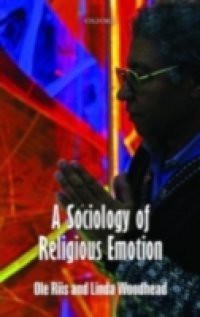This timely book aims to change the way we think about religion by putting emotion back onto the agenda. It challenges a tendency to over-emphasise rational aspects of religion, and rehabilitates its embodied, visceral and affective dimensions. Against the view that religious emotion is a purely private matter, it offers a new framework which shows how religious emotions arise in the varied interactions between human agents and religious communities, human agents andobjects of devotion, and communities and sacred symbols. It presents parallels and contrasts between religious emotions in European and American history, in other cultures, and in contemporary western societies. By taking emotions seriously, A Sociology of Religious Emotion sheds new light on thepower of religion to shape fundamental human orientations and motivations: hopes and fears, joys and sorrows, loves and hatreds.

